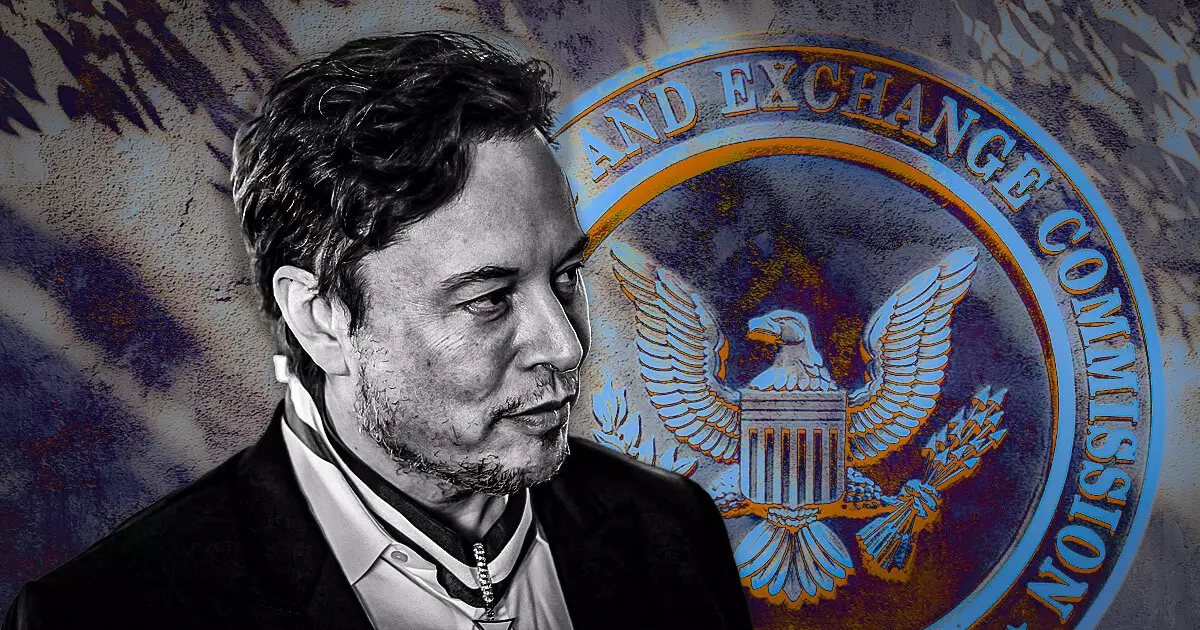In a bold move, the Department of Government Efficiency (DOGE), spearheaded by the innovative yet often polarizing figure Elon Musk, has set its sights on the US Securities and Exchange Commission (SEC). The primary aim is to expose and eliminate inefficiencies and unethical practices within the SEC, which are perceived to be detrimental to not just the agency’s integrity, but the broader financial landscape. By reaching out to the public for insights into problematic areas, DOGE is embracing a radical transparency approach that has garnered both support and skepticism.
On February 17, DOGE made a noteworthy announcement via a post on X, emphasizing its commitment to uncovering waste, fraud, and abuse within the SEC. The public was encouraged to share any pertinent information they might possess regarding the agency’s inner workings through direct messages. This strategy highlights a shift from traditional channels of accountability to a more grassroots, community-engaged model. The initiative is reminiscent of whistleblower programs but has a modern twist that aligns with tech-driven transparency movements.
The reaction within the cryptocurrency sphere has been electric. Industry leader Paul Grewal, serving as the Chief Legal Officer for Coinbase, has taken the opportunity to advocate for further reform. His proposal that the SEC should reimburse legal costs for companies that successfully contest the agency’s enforcement actions reflects a growing frustration with the regulator’s track record. Recent defeats, particularly under former Chair Gary Gensler, have sparked debates about the SEC’s credibility and its approach to overseeing an increasingly complex digital asset environment.
The SEC’s labeling of various cryptocurrencies as securities has sparked widespread controversy and unease among investors. Key figures in the cryptocurrency community argue that such designations—prompting legal disputes involving coins like Cardano (ADA) and XRP—have not only disrupted the market but also undermined investor confidence. They maintain that DOGE’s initiative may shed light on the often opaque decision-making processes within the SEC, particularly how regulatory classifications are determined and implemented.
As DOGE pursues its inquiry, the potential ramifications extend beyond just the SEC. Should the department successfully bring to light instances of mismanagement or failure, it could spark a re-evaluation of regulatory frameworks governing digital assets. The urgency to recalibrate enforcement practices comes not just from a desire for fairness, but also from a need to adapt to the evolving nature of digital finance. Influential crypto advocates, like Dan Gambardello, have raised critical points about the sustainability of investor trust within a regulatory environment that is perceived as punitive rather than protective.
The actions taken by DOGE against the SEC represent a pivotal moment in the battle between innovation and regulation in the financial sector. By leveraging public engagement and shining a light on potential inefficiencies, DOGE may not only hold the SEC accountable but also encourage a necessary dialogue about the future of cryptocurrency regulation. As stakeholders grapple with these developments, the outcome of DOGE’s efforts could determine the course of regulatory reform in the evolving landscape of digital assets.
















Leave a Reply